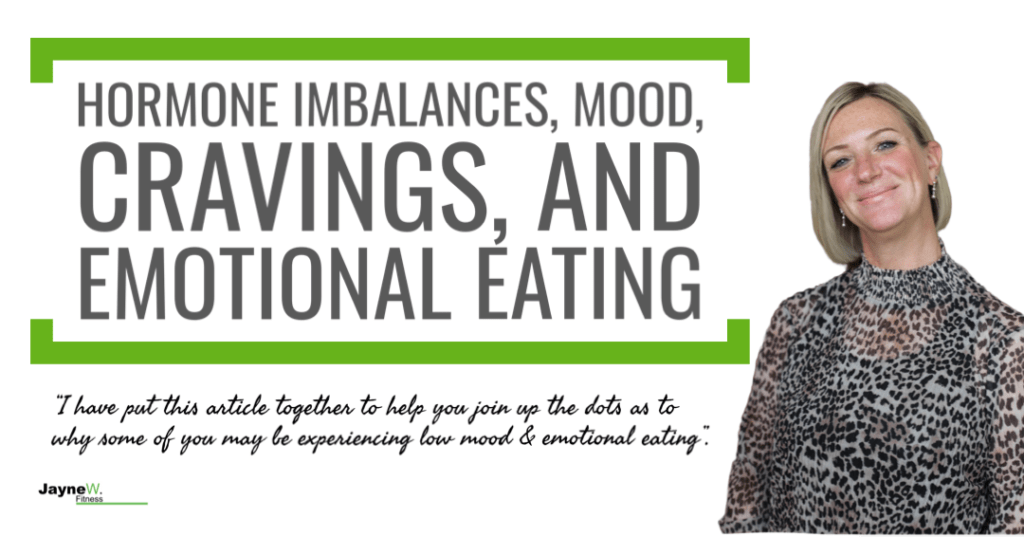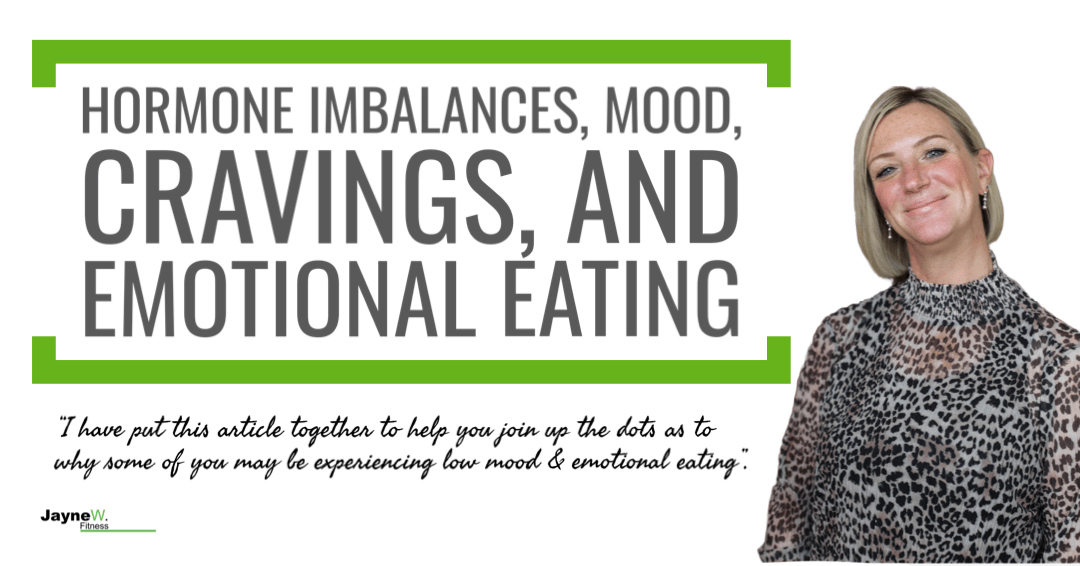
Introduction:
I have put this article together to help you join up the dots as to why some of you may be experiencing low mood & emotional eating. Changes, fluctuations in hormone levels can influence cortisol and insulin levels, as well as the regulation of appetite-related hormones like leptin and ghrelin.
These hormonal shifts are associated with mood swings, cravings, emotional eating, while also impacting dopamine levels in the brain.
In this article, I will map out the connections between hormone imbalances, emotional eating, late-night snacking, and provide you with some tips to help break the cycle.
1. Hormonal Effects on Cortisol and Insulin:
During menopause, oestrogen and progesterone levels decline, leading to imbalances in cortisol and insulin. Cortisol, your stress hormone, may become dysregulated, resulting in increased levels, which can contribute to weight gain, particularly in the abdominal region. Insulin, responsible for regulating blood sugar, may also fluctuate, leading to insulin resistance and potential weight gain.
2. Leptin, Ghrelin, Mood, and Cravings:
Leptin and ghrelin are hormones involved in appetite regulation. Leptin signals satiety, while ghrelin stimulates hunger. Hormonal imbalances can disrupt the balance between these hormones, leading to increased appetite and cravings. As a result, mood swings and emotional eating tendencies may arise, as food often provides temporary comfort or relief.
3. Emotional Eating and Dopamine Levels:
Emotional eating refers to using food as a coping mechanism to soothe or suppress emotions. Women experiencing hormonal imbalances may turn to food and alcohol for emotional comfort. Consuming such substances can affect dopamine levels in the brain, a neurotransmitter associated with reward and pleasure.
4. Late-Night Snacking and Menopause:
These hormonal changes, coupled with emotional tendencies, and compulsions related to habit/dopamine along with cravings, can also contribute to late-night snacking.
Late-night snacking is often associated with consuming calorie-dense and nutritionally poor foods, which can disrupt sleep patterns, affect metabolism, and contribute to weight gain. In turn this will leave you tired and create further cravings and low energy the next day creating poor nutrition choices, deflating motivation and so the cycle remains.
Breaking the Cycle of Late-Night Snacking:
a. Identify Triggers: Recognise the emotional triggers that lead to late-night snacking. Understanding why you engage in this behaviour is a crucial first step.
b. Practice Mindful Eating: Develop a mindful eating approach by paying attention to hunger and satiety cues. This allows you to differentiate between physical hunger and emotional cravings.
c. Find Alternative Coping Mechanisms: Explore and engage in activities that provide emotional support besides food or alcohol.
d. Create a Sleep Routine: Establish a regular sleep routine to improve the quality and duration of your sleep. Adequate sleep can help regulate appetite and reduce the likelihood of late-night snacking.
e. Stock Healthy Snacks: Keep nutritious, low-calorie snacks readily available. Opt for fruits, vegetables, or protein-rich options that can satisfy cravings while providing beneficial nutrients.
I hope this sheds light on some of the reasons why you may be struggling with food and drink choices, particularly in the evenings.
Jayne 💚
#healthybody #getfitwithjayne #womenshealthandfitness #healthymeals #healthyrecipes #healthyeating #healthymindset #healthtips #fitnesstips #homeworkouts #menopausetips #mindfuleating #healthyhabits #womensfitness #healthylifestye #getfitwithjayne #fitnessroutine #womenshealthandfitness #lowimpact #bodyweightworkout #exercise #beginners #dailysteps #moveyourbody

